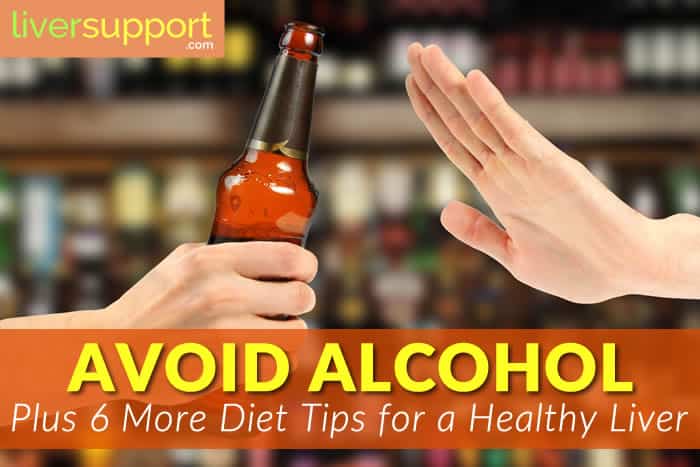
Previous
Sleep Apnea Can Intensify Non-Alcoholic Fatty Liver Disease

Next
Identifying Liver Pain
The Best Diet for a Healthy Liver
Discover 7 valuable diet tips to improve the health of your liver.
The liver is a major organ and liver function is vital for overall health and wellness. One way to maintain optimal liver function is through a healthy diet. Since the liver plays a key role in metabolizing carbohydrates (sugars) and lipids (fats), regulates blood sugar and stores glycogen as visceral fat for long term energy management, it makes since that a healthy diet plays a key role in liver function.
7 Diet Tips to Enrich Liver Health and Function
- Avoid Alcohol – Alcohol is essentially a toxin that poisons the body. As such, the liver is the primary organ responsible for filtering it out of the body. When alcohol consumption is excessive and/or chronic, it taxes the liver and eventually leads to permanent scaring, or cirrhosis.
- Low Sugar – The liver converts excess blood sugar to fat and stores it for later use. When the diet is chronically high in carbohydrates, the liver must continually be storing the excess blood sugar as fat, leading to weight gain and often to type-2 diabetes. The liver often becomes clogged with fat as a result of this process, a condition called NAFLD or nonalcoholic fatty liver disease. NAFLD in turn leads to fibrosis and eventually scarring of the liver (cirrhosis). A low sugar diet means avoiding sweets and candy as well as bad carbohydrates like pasta and bread. Even “complex carbohydrates” such as from whole grains still raise blood sugar; the only difference is that the fiber in them slows the process, allowing the body time to utilize the energy, reducing the load on the liver somewhat.
- Low Fat – A low fat diet helps the liver by reducing the fat in the blood and body, which helps reduce the load on the liver. The liver is the primary organ for metabolizing fats, and a high fat diet overloads the liver and may also result in NAFLD, a buildup of fat in the liver.
- Eat Small, Frequent Meals – Large meals result in a fast influx of calories and contain higher levels of fat and sugar by virtue of sheer volume. This spike in food taxes the liver. By eating smaller meals more frequently, the load placed on the liver is reduced and energy from sugars and fats is used over the time between meals, reducing the amount of fat the liver needs to store.
- Low Sodium – A diet low in sodium (salt) reduces fluid buildup in the abdomen and chest cavity, reducing the incidents of ascites. This swelling and bloating is a result of decreased function of the liver (from cirrhosis) and can be reduced significantly by a low sodium diet.
- Fiber – A diet high in fiber aids in liver function as the fiber binds with fats in the colon, reducing the amount of fat the liver must process. Fiber also slows the digestion time for carbohydrates, allowing the body time to utilize the energy, reducing the amount of carbohydrates the liver must process.
- Anti-Inflammatory Foods – A diet high in anti-inflammatory foods reduces inflammation throughout the body, but especially in the liver. Fresh fruits and vegetables are high in vitamins A, C and E, phytonutrients and other compounds that reduce inflammation and act as antioxidants. Cruciferous vegetables are especially good for improving liver function, along with turmeric, citrus fruits, berries and garlic. The fiber in fruits and vegetables also acts to remove fats and slow the digestion of sugars, easing the load on the liver.
Specific Liver Health Considerations
Certain conditions call for specific considerations in diet. For example, those with bile duct disease should use kernel oils such as canola, olive, corn, sunflower and flax seed, as they require less bile to break down. Those with cirrhosis should limit salt intake and not go overboard with protein as these may result in ascites and bloating. NAFLD responds best to a low fat, low sugar and high fiber diet. Those with hemochromatosis should avoid iron-rich foods, while those with Wilson’s disease should avoid foods high in copper like chocolate and nuts; shellfish; and mushrooms.
Overall, a well-balanced, healthy diet minimizes the load on the liver, and foods with anti-inflammatory properties help to minimize inflammation in the liver itself.
Cook, L.T.; O’Reilly, G.A.; Goran, M.I.; Weigensberg, M.J.; Spruijt-Metz, S.; Davis, J.N. (2014). Vegetable consumption linked to decreased visceral and liver fat and improved insulin resistance in overweight Latino youth. J Acad Nutr Diet. 114(11): 1776–1783. Retrieved on 9/21/16 from http://www.ncbi.nlm.nih.gov/pmc/articles/PMC4177517/pdf/nihms580888.pdf.
Gucciardi, A. (2012). 4 Natural liver cleansing foods. Natural Society. Retrieved on 9/21/16 from http://naturalsociety.com/liver-cleansing-foods/.
Harvard Health. (2016). Foods that fight inflammation. Harvard Health. Retrieved on 7/14/16 from http://www.health.harvard.edu/staying-healthy/foods-that-fight-inflammation.
Liver Foundation. (n.d.). Some liver diseases have specific diet recommendations. The Liver Foundation. Retrieved on 10/11/16 from http://www.liverfoundation.org/education/liverlowdown/ll0813/dietrecos/.
Liver Foundation. (n.d.). So, what healthy foods should you eat? The Liver Foundation. Retrieved on 10/11/16 from http://www.liverfoundation.org/education/liverlowdown/ll0813/healthyfoods/.
Sugar Science. (2016). How much is too much? Sugar Science. Retrieved on 9/26/16 from http://www.sugarscience.org/the-growing-concern-of-overconsumption/#.V-lTHST-o30.
Zeratsky, K. (2016). Nutrition and healthy eating. Mayo Clinic.org. Retrieved on 3/31/16 from http://www.mayoclinic.org/fat-grams/expert-answers/FAQ-20058496?p=1.






